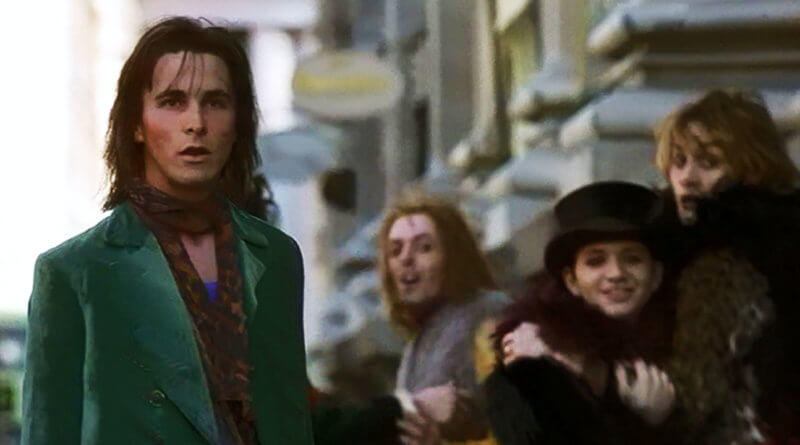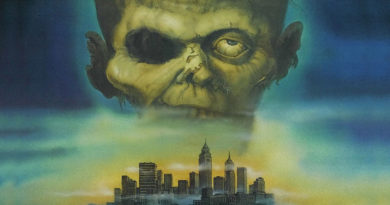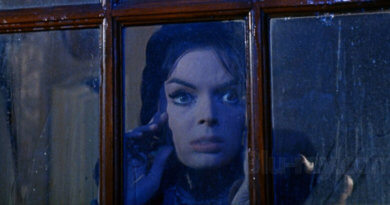Retro Review: Todd Haynes’ ‘Velvet Goldmine’
This retro review was originally published on Weird Movie Village in July 2014.
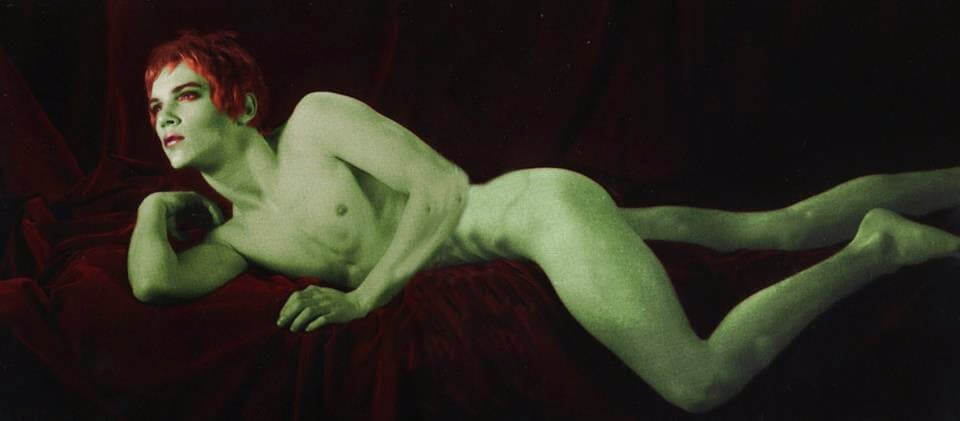
Last night, my sister and I went to the Alamo Drafthouse in San Antonio to see Todd Haynes’ 1998 paean to glam rock, Velvet Goldmine, part of its “Turn it Up to 11” series. It was great to see it on the big screen again.
I was surprised that there were only about a dozen people in the audience. Well, at least a couple of of the attendees showed up in glam drag.
Velvet Goldmine is the story of Brian Slade (Jonathan Rhys Meyers), an ambitious young musician who wants more than just stardom — he wants to change the world.
After a badly-received folk concert, Slade meets high-powered agent Jerry Devine (Edde Izzard) who encourages him to reinvent himself as the sexually fluid glam rocker, Maxwell Demon.
He meets and marries the adoring Mandy (Toni Collette), only to be gobsmacked by the uninhibited proto-punk Curt Wild (Ewan McGregor). An intense love affair and creative collaboration ensues, but the relationship is doomed from the start.
Their breakup is bleak. Forlorn Brian decides to stage his own theatrical assassination in order to disappear from the scene — but the circumstances of his death remain oblique.
Whatever happened to Brian Slade?
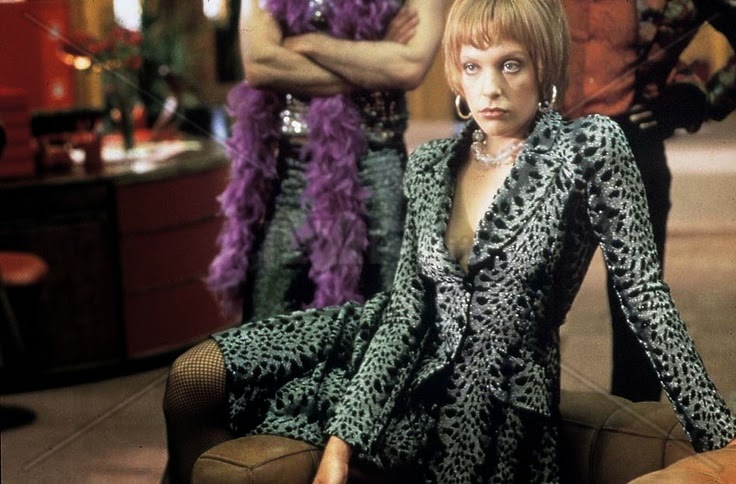
Ten years later, in 1984, Arthur Stuart (Christian Bale), a British journalist with a glam rock past of his own, is assigned by an American tabloid ponlisher to uncover the real story.
In more than just a nod to Citizen Kane, Arthur returns to London to interview those who circled in Slade’s orbit, including Mandy, Curt and a former manager, Cecil (Michael Feast).
Cecil is wheelchair-bound, just like Joseph Cotten in Kane, and Mandy is found drowning her sorrows, Susan Alexander-style, in a dimly-lit dive bar. Their recollections spark flashbacks replete with visually sumptuous musical numbers, and we are taken along on a glitter-infused odyssey to try to understand the enigma that is Brian Slade.
Velvet Goldmine was a bomb upon its initial release, remembered more fondly by audiences interested in the subject matter than by most critics, who declared it visually intriguing but deficient storywise.
I don’t agree — I find it easy to follow and quite artistically done. The way Haynes assembles the scenes the from Brian’s (and Arthur’s) life builds up an increasing feeling of melancholy, of yearning for a magical era that was far too short and was gone much too soon.
With his pale blue eyes, Meyers makes for an perfectly otherworldly Slade. Even though his shallow, self-serving ambition is easy to spot from outer space, it’s also easy to see why Mandy and Curt fall head-over-heels for him. An enigma is an enigma, after all.
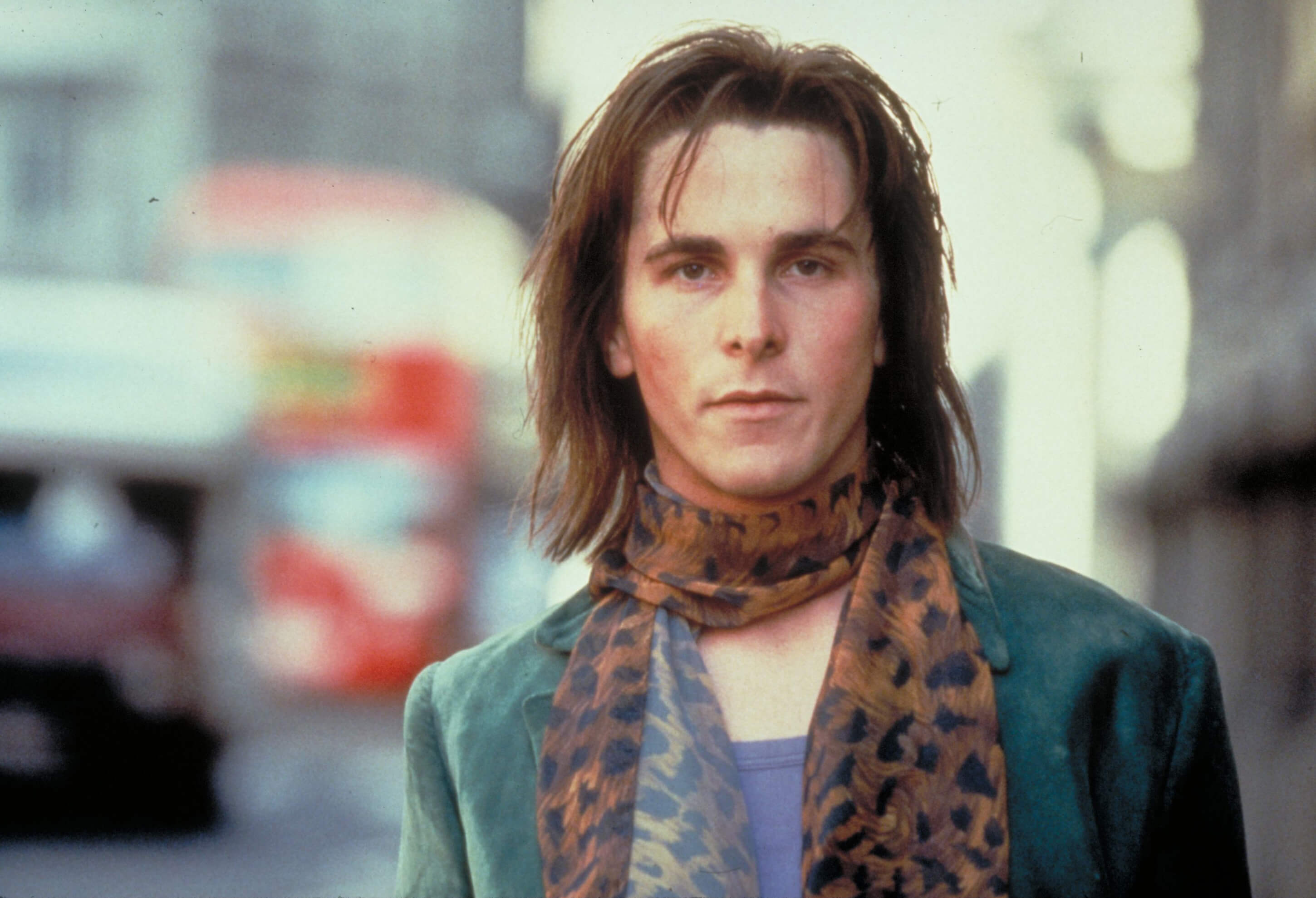
Maxwell is based on David Bowie’s Ziggy Stardust, right down to the killing of his character. And even though the film shares its title with a Bowie song, the depiction of Slade as being a vapid opportunist evidently so displeased the glam legend that he refused to allow any of his songs to be used on the soundtrack.
McGregor’s Curt is an amalgam of Iggy Pop and Lou Reed, two of Bowie’s close associates back in the day, although his blond locks make him look a lot like Kurt Cobain. Collette brings a touching humanity to the social-climbing Mandy, who worships the ground he walks on. Both actors have a good onscreen rapport with Meyers, which is essential.
Bale is splendid as the mournful Arthur, and he’s got good reason to grieve. He’s trying to live vicariously as Brian Slade.
Watching the musician perform on Top of the Pops on telly, he excitedly turns to his parents and exclaims, “That’s me, Da!”, only to be slapped down.
And as Brian’s star ascends, teenage Arthur remains trapped in a gloomy suburb and must content himself with fantasizing over the singer’s image while concealing his real self from his strict, disapproving parents.
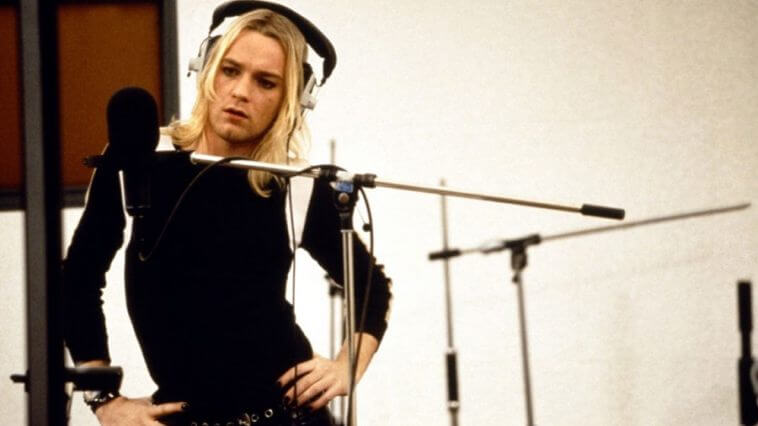
He manages to grab a few fleeting moments of freedom in the glam scene before it all implodes, but when we meet him again in the ’80s, his light has clearly gone out.
Arthur is truly the broken heart of the film.
The score is great, with Radiohead’s Thom Yorke standing in for Brian Ferry on a couple of numbers. The new tunes blend seamlessly with the originals by T. Rex, Roxy Music and Lou Reed.
Haynes stages the musical numbers with exuberance, which oddly earned the wrath of some reviewers who tsk tsk tsked and thought that they were derivative. A cranky Roger Ebert complained that there were too many nods to films like A Hard Day’s Night and A Clockwork Orange, which puzzles me. What better way to establish a milieu than by evoking images from such iconic cultural artifacts as these?
The Blu-Ray is available at Amazon.

